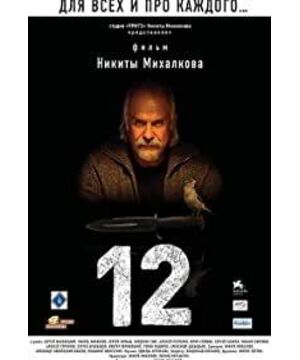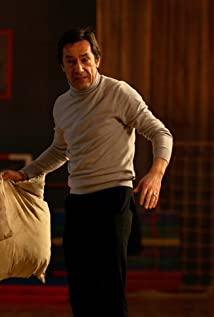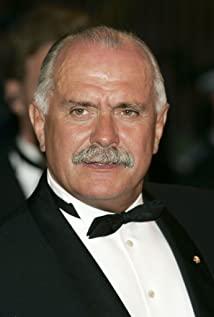I watched the Chinese version of "Twelve Citizens" before, and then watched "Twelve Angry Men", and I automatically made some comparisons. And more is thinking about the last sentence of the film: the law is eternal and supreme, but what if mercy is higher than the law?
In the single-line narrative of the Chinese version of "Twelve Citizens", the entire key process only takes place in the simulated jury discussion room, with at most a scene transition to the bathroom. However, the Russian version of the two-line narrative, the jury discussion scene and the defendant's waiting scene, as well as the defendant's early life and war scenes, show the background of the case in a more comprehensive and three-dimensional manner.
The Chinese version of "Twelve Citizens" overturned all the evidence and testimony and successfully proved the innocence of the teenager through step-by-step reasoning analysis, while the Russian version not only proved the innocence of the teenager, but also deduced the real murderer and his motive. And the more profound reason why the defendant became the defendant: the deliberate guidance of interest groups, the stupid and cruel jealousy of women. In the end, he made a more in-depth thinking: as a jury, whether the responsibility can be limited to the court. Everyone made a verdict of innocence, rejoicing, helping an innocent child to clear the suspicion for themselves, and also doing their own thing to finally complete the task. But the host mentioned things after the child, "you can live longer in prison", the law really can only stay in the case itself, whether people are guilty or not, but human nature makes them think more, considering being convicted or not. The fate of the accused after his innocence. There are many things that the law cannot take into account. Indeed, man is only man, not God. Uma is fortunate to meet someone who is willing to think about his future destiny and who is willing to be deeply integrated with his life from now on. But what most people can do is to judge right or wrong, and things after right and wrong are powerless. People are just people, not gods, not gods, judges, lawyers, jurors. Indeed, "things are not going to change". There is no way to ask everyone to take the world as their own responsibility. Everyone has their own hardships, their own responsibilities, and their own likes and dislikes.
The law is eternal and supreme, guilt is guilt, innocence is innocence, black is black, white is white, and it always pursues such objective correctness. Kindness is not that it cannot be above the law, but that it cannot. Because kindness is too subjective. As a jury, you are only responsible for discovering the truth, and the truth can never be denied or covered up, for whatever reason. When most people are powerless, obeying the law is the highest kindness. At least you gave him the chance to choose. "Just like this, if you want to fly, you can fly away. The coast is empty. If you want to stay, you can stay. However, you have to decide for yourself, and others will not help you decide." The inside of the gym is warm and peaceful, and outside the gym is the freezing winter snow. Just like Uma, it will be safe to stay in prison and be released, facing a society where the wind and frost are strictly enforced. The bird flew out without hesitation, just like Uma was released. In times like these, the good thing is that you let you decide for yourself. Although cold, sometimes cold is the highest kindness. Heaven and earth are perfect and benevolent, watching from the sidelines.
We cannot change, but how can we know whether the protagonist we are concerned about can change himself. We are not gods and cannot do everything. We are only responsible for defending the truth, and the results are borne by the parties themselves. As for the people around you, first of all, you probably don't have to have too high requirements. Human nature and morality are accumulated and improved little by little. At least, the willingness to clear the grievances and defend the truth is already the first step of kindness.
View more about 12 reviews











